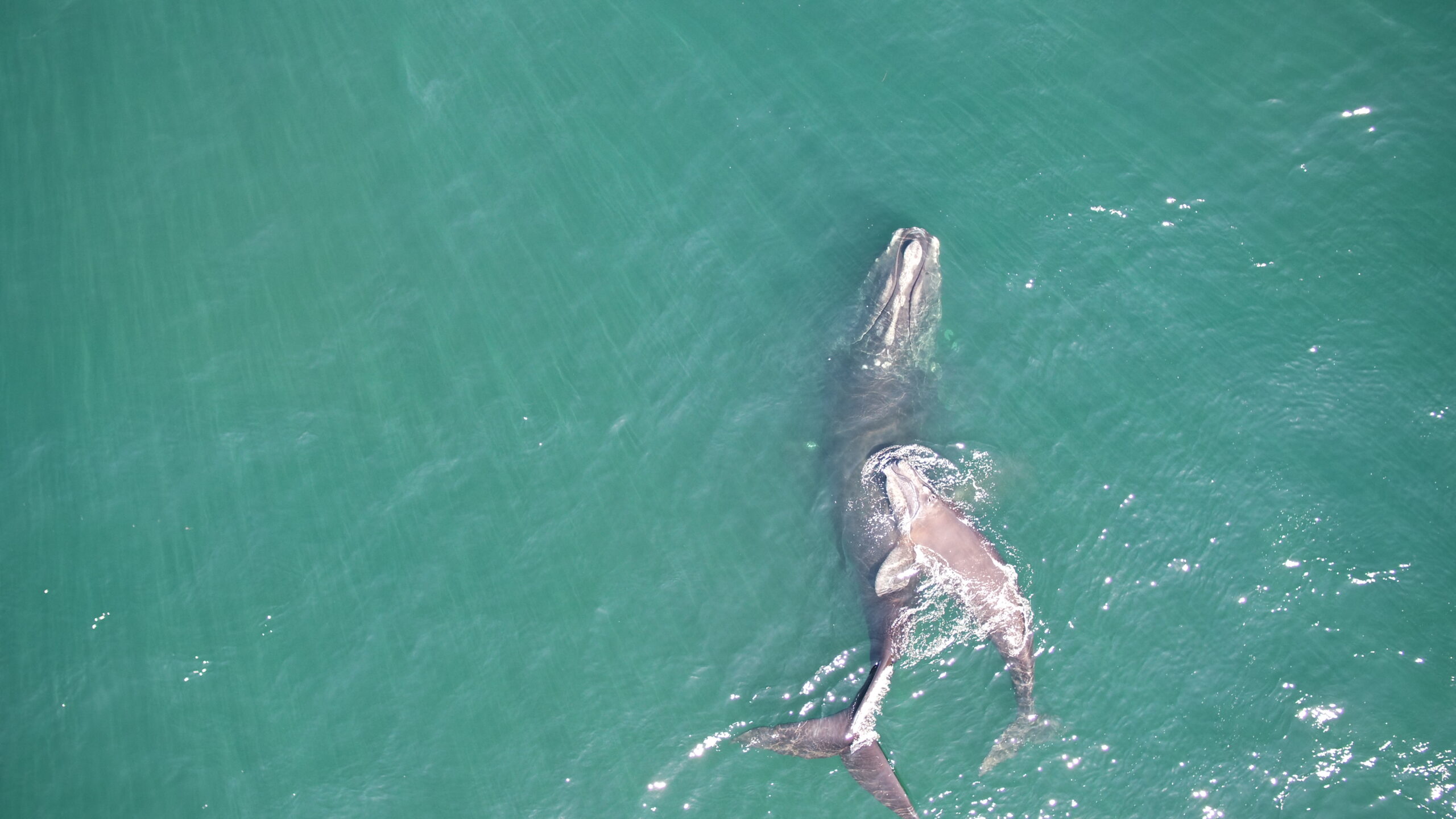
BOSTON, MASS. (Feb. 16, 2024) – The National Oceanic and Atmospheric Administration (NOAA) has announced that a North Atlantic right whale found dead off the coast of Georgia died from a vessel strike.
NOAA said the necropsy revealed evidence of blunt force trauma, including fractures of the skull, consistent with a vessel strike. New England Aquarium scientists helped identify the deceased whale as a one-year-old female, first sighted off Florida in December 2022. This is the second known right whale to suffer a vessel strike injury in the last six weeks, after a newborn calf off the Southeast U.S. was seen with severe propeller wounds on its head, mouth, and left lip in early January. In addition to the two recent vessel strikes, a dead three-year-old female right whale washed ashore on Martha’s Vineyard on January 28. According to NOAA, preliminary necropsy results of the whale showed chronic entanglement, with rope that has since been linked to Maine waters deeply embedded in the whale’s tail.
“This latest right whale death is drawing more attention to the urgent need for implementing stronger measures to protect these animals from vessel strikes. Documenting two right whale vessel strikes in just the last month is nothing short of devastating for this critically endangered species,” said Dr. Jessica Redfern, Associate Vice President of Ocean Conservation Science in the Anderson Cabot Center for Ocean Life at the New England Aquarium. Dr. Redfern has studied vessel strike impacts on whale species for more than a decade, and she led recently published research showing the benefits of vessel speed restrictions when it comes to protecting large whales.
NOAA is currently considering modifications to the existing vessel speed rule to better protect North Atlantic right whales. Proposed changes to the federal vessel speed rule include expanding the size of the areas covered; increasing the time period for those areas with existing seasonal speed restrictions; extending restrictions to include most vessels measuring 35 to 65 feet in length; and implementing mandatory speed restrictions in dynamic speed zones, which are established when and where whales are observed and are likely to remain. The proposed rule was published more than 18 months ago in July 2022, but has not yet been finalized. The untenable delay has put this vulnerable species at continued risk.
Vessel strikes and entanglement are the two leading causes of serious injury and mortality to North Atlantic right whales, a critically endangered species with less than 360 individuals remaining. The New England Aquarium urges immediate, science-based action to reduce those threats.
“Scientific research shows NOAA’s revisions to the vessel speed rule will help protect right whales from vessel strikes. Finalizing this rule and expediting the broad adoption of on-demand (i.e. ropeless) fishing gear are urgently needed to prevent the extinction of this species,” said Dr. Redfern.
MEDIA CONTACT: Pam Bechtold Snyder, psnyder@neaq.org; 617-686-5068
